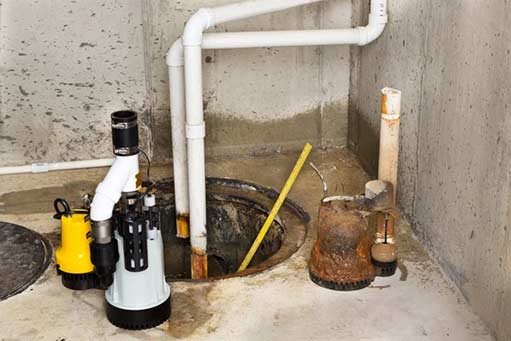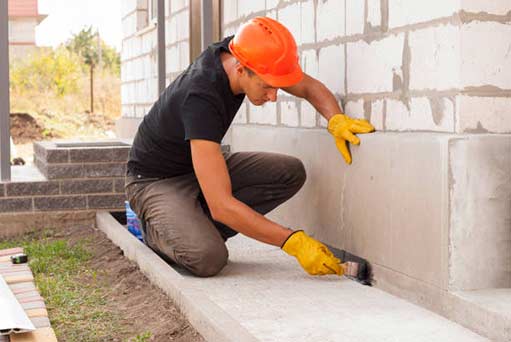
If you’re a homeowner concerned about protecting your basement from water damage, this article is for you. We will explore the benefits and limitations of sump pumps and provide valuable insights to help you make an informed decision.
Understanding Basement Flooding
Basement flooding is a common issue that can cause significant damage to your property and valuables. It occurs when water accumulates in your basement due to various reasons such as heavy rain, melting snow, or poor drainage. The consequences of a flooded basement can be devastating, leading to structural damage, mold growth, and the loss of personal belongings.
Preventing basement flooding requires a proactive approach, and one effective solution is the installation of a sump pump. A sump pump is a device designed to remove water from the sump pit and prevent it from reaching dangerous levels. But how does it work, and can it truly prevent basement flooding? Let’s find out!
The Role of a Sump Pump
A sump pump is installed in a sump pit, which is typically located in the lowest part of your basement. Its primary function is to collect water that enters the pit through drains or natural water migration. Once the water level rises to a specific predetermined point, the sump pump activates and removes the water by pumping it away from your home, usually through a discharge pipe that leads outside.
This continuous removal of water ensures that the sump pit remains at a safe level and helps prevent flooding in your basement. However, it’s important to note that a sump pump is not a guarantee against basement flooding, as its effectiveness depends on several factors.
The Effectiveness of a Sump Pump
While a sump pump can significantly reduce the risk of basement flooding, it is not foolproof. It is essential to understand its limitations and consider other preventive measures to maximize protection. Here are some key factors to keep in mind:
Power Outages
A sump pump relies on electricity to operate, and during severe storms or heavy rainfall, power outages are not uncommon. In such situations, your sump pump may become temporarily useless, leaving your basement vulnerable to flooding. To address this concern, consider installing a backup battery powered sump pump or a generator, to ensure uninterrupted operation.
Pump Failure
Like any mechanical device, a sump pump can experience malfunctions or failures. Regular maintenance and inspection are crucial to ensure its proper functioning. Sump pumps should be tested periodically, and the sump pit should be kept clean of debris that could obstruct the pump’s operation. Additionally, having a professional plumber assess and service or repair your sump pump can help identify any potential issues and address them promptly.
Pump Size and Capacity
The size and capacity of your sump pump should be appropriate for your specific needs and the size of your basement. A pump that is too small may struggle to keep up with heavy water inflow, leading to inadequate protection. It is advisable to consult with a professional to determine the right size and capacity for your pump based on factors such as average rainfall, drainage system, and basement layout.
Maintenance and upkeep
A sump pump requires regular maintenance to ensure its longevity and effectiveness. It is essential to clean the sump pump and the sump pit, remove any debris, and test its operation at least once a year. Additionally, check the discharge pipe for any obstructions and make sure it directs water away from your home’s foundation. Following these maintenance practices will help keep your pump in optimal condition.

Implementing additional strategies can provide extra protection and peace of mind.
Complementary Measures to Prevent Basement Flooding
While a sump pump is a valuable tool in preventing basement flooding, it should not be relied upon as the sole preventive measure. Implementing additional strategies can provide extra protection and peace of mind. Here are a few complementary measures to consider:
Proper Grading and Landscaping
Ensure that the ground surrounding your home slopes away from the foundation to prevent water from pooling near the basement walls. Proper grading, in combination with appropriately designed landscaping features such as swales or French drains, can help redirect water away from your home.
Downspout Extensions
Extend your downspouts away from your home’s foundation to prevent excessive water from accumulating near the basement walls. Consider using downspout extensions or splash blocks to direct the water at least six feet away from the house.
Exterior Waterproofing
Consider applying waterproof coatings or sealants to the exterior walls of your basement. These products can create a barrier against moisture and can be particularly beneficial if your basement is prone to water infiltration.
Interior or Exterior Drainage Systems
If your basement experiences chronic water issues, installing an interior or outdoor drainage system can be an effective solution. These systems involve the installation of French drains and a sump pump to collect and redirect water away from the basement.
Regular Inspections
Regularly inspect your basement for any signs of water damage, leakage, or cracks in the walls or floor. Identifying and addressing these issues promptly can help prevent more significant problems in the future.
Summing it Up
A sump pump is undoubtedly a valuable tool in preventing basement flooding. However, it is essential to understand its limitations and implement additional preventive measures for maximum protection. Regular maintenance, proper sizing, and considering complementary strategies will significantly enhance the effectiveness of your sump pump.
Remember, prevention is always better than dealing with the aftermath of a flooded basement. By taking a proactive approach and investing in the right tools and preventive measures, you can safeguard your basement and protect your home from the devastating effects of water damage.
We hope this article has provided you with valuable insights into the effectiveness of sump pumps in preventing basement flooding. Stay safe and dry!